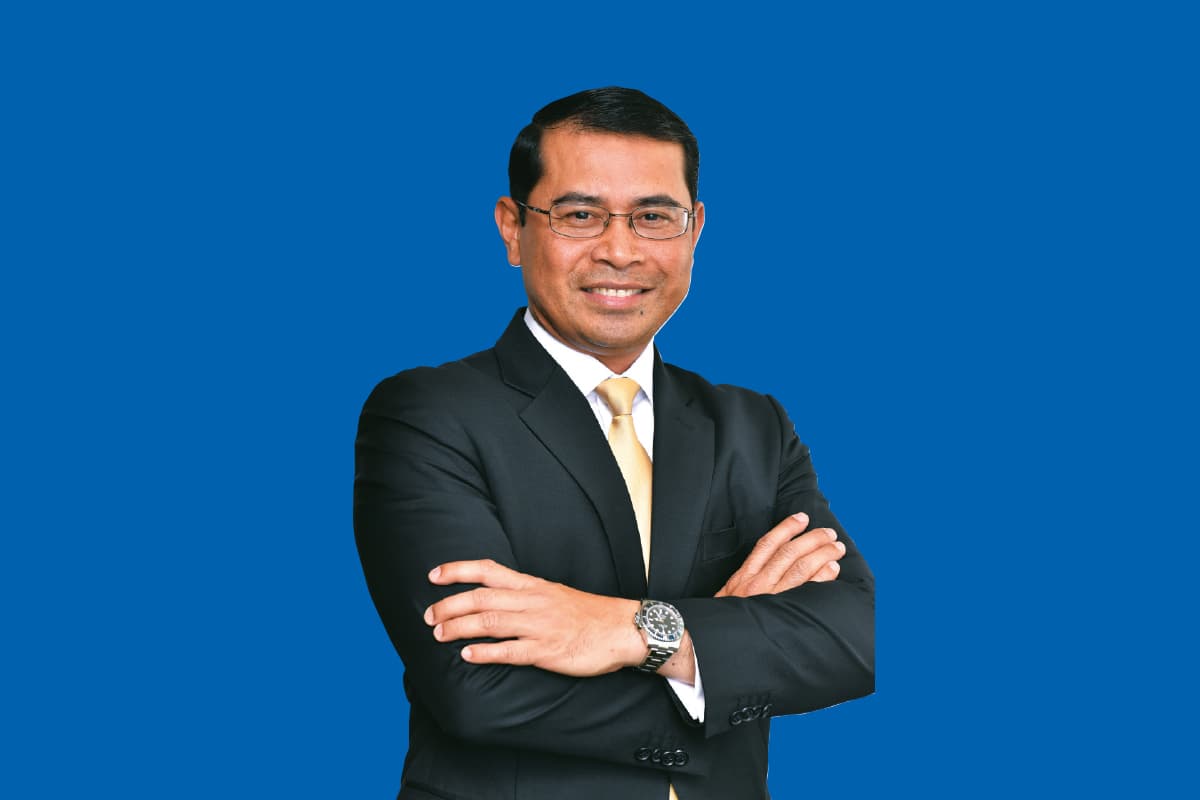
This article first appeared in Wealth, The Edge Malaysia Weekly on March 28, 2022 - April 3, 2022
Affin Hwang Asset Management Bhd (AHAM) won the group award for Best Equity Malaysia (Islamic) while Affin Hwang Select Balanced took home the awards for Best Mixed Asset MYR Global (Provident) in the three- and five-year categories.
Akmal Hassan — managing director of AIIMAN Asset Management Sdn Bhd, which manages the equity funds that won the group award — attributes its success to the firm’s investment philosophy, which is underpinned by an absolute return mindset and emphasis on the quality of growth of its underlying assets. This philosophy is overlaid with macro awareness to help the firm determine its investment risk tolerance.
“By not being bound by any benchmark, our investment approach has allowed us to raise cash during periods of volatility and focus on capital preservation when the macro environment turns challenging. Our overall investment philosophy also helps us to know when to take some money off the table and when to deploy more cash into the market when the risk-reward is in our favour,” he says.
Just when the market is expecting a year of recovery, 2021 turned out to be another volatile one, due to the ongoing pandemic and political uncertainties. However, the firm managed to sail through despite the strong winds and storms, guided by its investment philosophy.
Akmal and his team had a higher level of cash at the beginning of last year, after locking in gains from stocks in the healthcare sector. They then progressively deployed cash throughout the year — particularly during periods of wild swings in the market — when bargain hunting.
“We wanted to capitalise on opportunities as quality names were being sold down indiscriminately on the back of monetary tightening and inflation fears,” he says.
On average, the cash level of the firm’s various shariah funds ranged between 10% and 20%.
Entering 2022, Akmal expects markets to enter a transition period as economic growth rates normalise globally while central banks embark on their tightening cycle, partly to rein in excess stimulus released during the pre-pandemic period. “The key this year is for investors, including fund managers, to remain agile and quick in adjusting to new market realities when these shifts happen,” he says.
“Broadly, we continue to maintain a barbell approach, with significant positions in defensive companies to anchor our portfolio. This is balanced by positions in what we deem as quality growth stocks with structural growth potential, strong business moat and healthy balance sheet.”
David Loh, AHAM’s deputy head of equity and a member of the team that manages Affin Hwang Select Balanced, attributes the fund’s success to a team-based decision-making process.
“An advantage of ours is the ability to leverage the diverse skill sets of our team members, thereby allowing us to adapt to changing market conditions quickly. As 2021 was predominantly a trading market, the ability to shift positions quickly with conviction contributed to the fund’s outperformance,” he says.
To Loh, the biggest challenge last year was the fund’s exposure to China. The fund took a hit when the Chinese government embarked on a huge socialist, common prosperity agenda that posed a significant threat to corporate earnings.
“Various sectors tumbled one by one and we found it extremely hard to read the market. We diversified our investments into other markets with stronger fundamentals as a result,” he says.
He adds that there weren’t many changes last year in terms of asset allocation, with cash levels hovering around 8% to 10%. “On the equity side, we adopted a more tactical trading position, given how short the market cycle was, with plenty of rotational play emerging among the different sectors. There was a constant tug of war between value and growth trades.”
For Ahmad Raziq Abdul Rahman, associate director of AHAM’s fixed-income team, the critical challenge last year was the rising yield environment coupled with concerns about higher government bond supply.
“We decided to shift to a more defensive position to help buffer the impact of the resulting volatility. We were also overweight repriced corporate bonds that were trading at attractive levels, and invested in more liquid corporate bond names to allow for more flexibility to trade the market,” he says.
For 2022, Loh favours the banking sector, which is expected to benefit from the rising interest rate cycle. “As we transition to the endemic phase, we see opportunities in sectors that are starting to reopen and could benefit from strong pent-up demand in the market. We are also revisiting the technology sector as valuations have become more attractive after the recent selldown,” he says.
On the fixed-income side, Ahmad Raziq expects this year to be better than the last due to more attractive valuations and the expectations of better liquidity in the local bond market. “We continue to favour corporate bonds with three- to seven-year tenures that provide a regular source of interest income to our portfolio,” he adds.
“We also remain selective in our credit selection through our rigorous investment process, and will be on the lookout for opportunities to trade government bonds for potential capital gains.”
Save by subscribing to us for your print and/or digital copy.
P/S: The Edge is also available on Apple's AppStore and Androids' Google Play.


